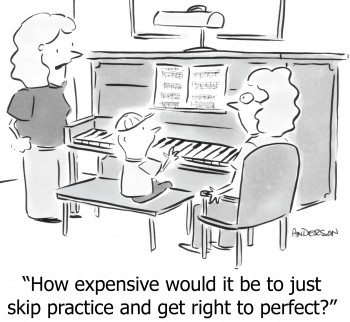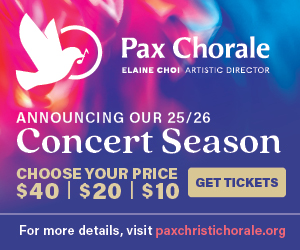 In march this year we published our first “Orange Pages” directory” — a collection of profiles written by private music teachers, community music schools and summer music programs of various kinds. Their goals and ours were, and remain, the same — to put music teachers with something to offer in touch with prospective students wanting to learn. The grand vision, of course, would be to come up with a resource that would do for lifelong music learning what our concert listings do for the live music scene — a “one stop shopping” destination in the quest for a music teacher or school.
In march this year we published our first “Orange Pages” directory” — a collection of profiles written by private music teachers, community music schools and summer music programs of various kinds. Their goals and ours were, and remain, the same — to put music teachers with something to offer in touch with prospective students wanting to learn. The grand vision, of course, would be to come up with a resource that would do for lifelong music learning what our concert listings do for the live music scene — a “one stop shopping” destination in the quest for a music teacher or school.
A grand vision indeed, but the reality is that even the grandest edifices are constructed brick by brick. There is no short cut to what we are trying to do. We realized early on that profiles wrfitten by the teachers are only part of the answer — that what is also needed is some way of gathering comparable data from all the participants —
so that someone looking for a teacher can go online and find a teacher in a specific town or in a particular area of music.
A dear friend of The WholeNote, a retired music professor, helped us draft questionnaires for various kinds of music teaching — private, community-based, fulltime — and, once again, as the saying goes, we were “good to go.” All we had to do was put the survey up on our website and, presto, there would be our hoped for panoramic vista of all the educational possibilities out there.
Or would it? We took the precaution of running our draft questionnaires by a cross-section of active music teachers and educators.Were we asking the right questions or not? What others might we ask? We asked for feedback and, boy, did we get it!!!!
“The whole premise of these number-crunching questionnaires seems all wrong to me ...”; “I would certainly never take part in it, and I consider myself one of the best independent teachers in town”; “Perhaps examples would help generate responses”; “The queries seem far too intrusive for the typical private music teacher to care to answer” were some of the more extreme, along with a host of really practical suggestions, seeing the usefulness of what we were hoping to do, and how to improve it.
One response though seemed to hit the nail on the head:
“None of the questions I see tells me anything about the potential studio teacher/music student relationship or philosophy, and that’s really all that matters in choosing a teacher.”
The central issue is that studying music is all about the relationship between teacher and student, and this was the fundamental difference between our idea for an Orange Pages directory of music schools and teachers and some of our other directories.
Letting the teacher or school say what they like about themselves is clearly not enough. Trying to turn them into ciphers on a questionnaire (“like the long-form census” as one exasperated commentator put it) is not the whole answer either. But somewhere in between there’s still, we think, a useful role for us to play — a way of gathering and correlating information so that the searching student can compare “oranges to oranges,” in the search for the right teacher — while at the same time giving individual teachers the opportunity to give voice to the things they most prize and value; to say in their own words what they believe they have to offer.
All the private teachers and community-based music schools who participated in our March 2013 Orange pages are represented by a single “brick” in the wall that lines these three pages. If you imagine this wall growing, brick by brick, into the “grand edifice” I alluded to earlier, it’s not hard to see how overwhelming that wall of information would become. So somewhere in the not too distant future, as the wall grows, brick by brick, we need to figure out exactly how to arrange things so that if you “click a brick” it becomes a window into what some individual teacher or school has to offer; and that you have ways of sorting out which bricks to click in the search for that one teacher who is right for you.
Meanwhile, in the midst of all these realizations and revelations, we recognized that so far we have left out of the equation the most important player in the quest for the right teacher or school — you, the reader who is looking for opportunities to deepen the place of music in your life or the life of someone close to you. Maybe the way to the “right questions” for teachers is via the questions that you, the prospective student, would like the answers to.
So, please, go to our website (TheWholeNote.com/OrangeSurvey) and participate. You will be able to rank the importance of the questions we have already thought of. You will be able to add questions of your own that you think teachers and prospective students should ask of each other and themselves. And most important of all you will be able simply to say what you think of all this; how you think we can best be of help to you in finding the right teacher or teachers for your personal musical needs and desires.
Allan Pulker is chairman of the board of The WholeNote.



